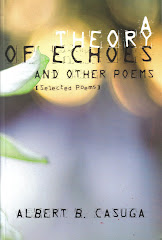PLANNING FOR A TREEHOUSE
(Voices from Three Generations)
(For my Grandchildren)
We will see so/ little of the world that it is/ important for you to see this/ tree, to envision rooms and/ stairs where there is only air/ and leaves, to place the first/ board against the bark. --- From “Treehouse for God” by Hannah Stephenson, The Storialist, 10-25-11
1.
Come summer, we will build
another treehouse on an oak
overlooking the creek, there
is more of you now to gather
remnants we can put together.
Nothing bigger, but higher,
maybe closer to the clouds,
nearer to the stars, away from
the giggling girls next door.
We will see less of the world.
2.
Or more of it below: yelping
dogs lining up for the lift-leg
tree astride our river bank,
are easy slingshot targets off
stouter, steadier branches.
O, and there is soldier-boy
doing it with the wife round
the clock since he came back
wounded from Iraq, Libya,
and all on the eastern crack.
3.
Shush, buddyboy, that’s not
what treehouses are for. What
are they for, gramps? To espy
on sparrows, robins, jays, owls
talk to each other on sundowns.
So, if we build it a bit higher,
we can also build a treehouse
for God, can we not, gramps?
Why ever for, laddie? He is
everywhere. But nowhere near?
4.
Cool. A treehouse for God on
the river bend. Then, maybe,
just maybe, we can visit him
anytime, gramps, ask for help
for starving kids in Somalia.
Hook him up on a telephone
line, strings and cans and all,
and maybe Dad can provide
Him with a Bell Internet link,
alert Him on the Facebook!
5.
So he can stop all killings and all
and punish priests who molest
altar boys and girls, and...Whoa!
Whoa, boys, we are building a
treehouse, not His jailhouse.
Could we build one for God,
anyway, gramps? We got boards
and plywood and shingles and
nails, and...borrow mom’s cross,
to protect Him in His treehouse.
6.
Winter is almost here, boys,
we need to firm things up here
so it would not fall off. We will
build another come summer
on that oak bent over the creek.
(He wipes clammy sweat off his
forehead, winces at a strange jab
of pain on his chest, tingling on
his arms.) Time to climb down,
boys, before we nail Him down,
again.
--- Albert B. Casuga
10-26-11



























